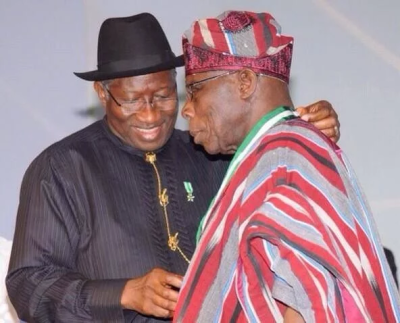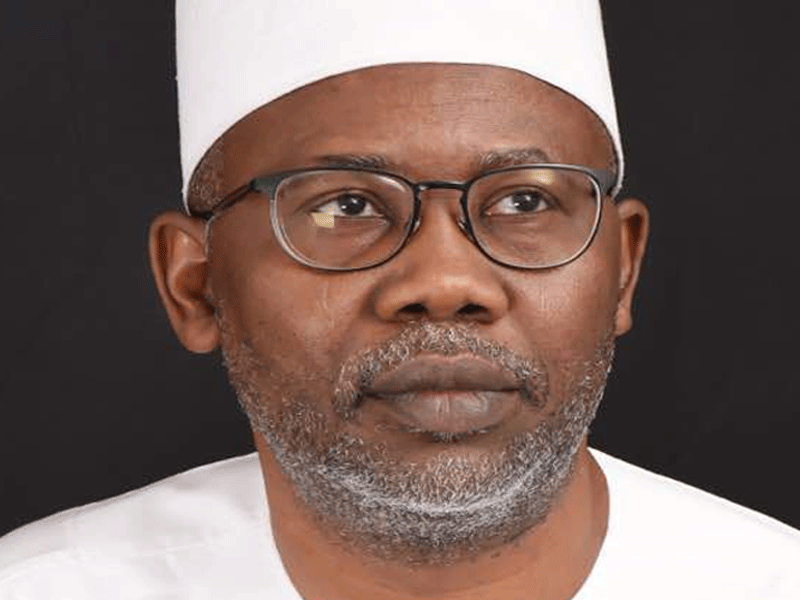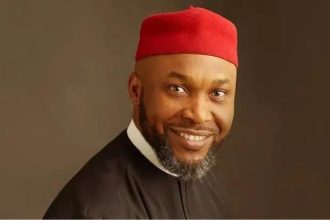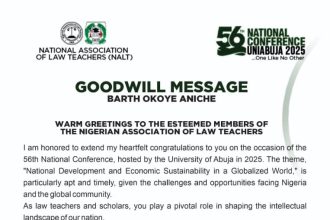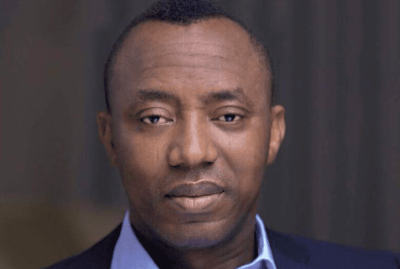Former Nigerian Presidents, Chief Olusegun Obasanjo and Dr. Goodluck Jonathan, have raised concerns over the current political climate in Nigeria, warning that the nation’s democracy is at risk of derailment if urgent actions are not taken by the judiciary. Both leaders made these remarks while serving as Chairman and Co-Chairman at the 67th birthday celebration and the presentation of 50 books authored by constitutional lawyer and Senior Advocate of Nigeria (SAN), Prof. Mike Ozekhome, held in Abuja.
Obasanjo’s Remarks on Political Instability
In his speech, Chief Obasanjo acknowledged the precarious state of Nigeria’s political landscape, referring to it as turbulent. Although he suggested that there is much to be said about the current situation, he refrained from elaborating further, noting, “There is much to say, but there is not yet time for it.”
His comments alluded to the broader issues facing the country, including the political tensions within major political parties, governance challenges, and the judiciary’s role in these issues.

Jonathan’s Warning of Democratic Crisis
Dr. Goodluck Jonathan, in his more pointed remarks, expressed grave concern over the trajectory of Nigeria’s democracy. He metaphorically described the situation as “like a cone turned upside down,” cautioning that such instability could cause harm to many who attempt to navigate it.
Jonathan specifically referenced recent judicial rulings in political cases, particularly one that allowed for the removal of a national party chairman by a lower-level party unit, such as a ward. This ruling, he argued, has had devastating effects on the stability of political parties, notably the People’s Democratic Party (PDP).
“The foundation of the current political crisis rocking major political parties was laid on a judgement where the court held that a ward can expel a national chairman,” Jonathan stated.
He criticized the ruling as an aberration to natural justice, emphasizing that such a decision disrupts the balance of power and governance within political organizations. He stressed that no sub-unit of an organization, such as a ward, should have the power to discipline its head, especially a national chairman. Jonathan further explained, “I have never seen a situation where a sub-unit can discipline the head. We are saying that a ward chairman can discipline a national chairman? This judgement is destabilizing political parties.”
Obasanjo Call for Supreme Court Intervention
Jonathan urged the Supreme Court of Nigeria to review the ruling that he believes has contributed to the current crisis in major political parties, particularly the PDP. He stressed that the political system is “wobbling” due to this judgement and argued that revisiting and overturning the decision would help restore stability to Nigeria’s democratic process.

“I am pleading with the Supreme Court to review that judgement to stabilize the country’s politics,” Jonathan implored, noting that the implications of the judgement have spread beyond individual political parties and are now affecting the country’s broader political framework.
Judicial Responsibility in Political Cases
In his remarks, Jonathan also expressed disappointment at the judiciary’s handling of political cases, pointing out that Nigerian courts are increasingly burdened with pre-election and election-related cases, which he believes is a negative indicator for the country’s democracy. He called on Nigerian judges and lawyers to draw inspiration from positive political rulings in other countries.
“When I listen to people like Olisa Agbakoba, I feel sad that democracy has gotten to that level,” Jonathan lamented, criticizing what he sees as a judiciary overly influenced by political maneuvering. He emphasized that judges must remain impartial and not be swayed by political pressure, cautioning that the judiciary’s independence is essential for safeguarding democracy.
Obasanjo and Jonathan Commend Ozekhome
Both former presidents also took time to praise Prof. Mike Ozekhome for his contributions to legal scholarship and his dedication to national development. Obasanjo described Ozekhome as an extraordinary man who not only excels in the legal field but also cares deeply about the well-being and progress of Nigeria.
Jonathan echoed these sentiments, noting Ozekhome’s courage, conviction, and integrity in pursuing social change and advocating for the protection of democracy and justice in Nigeria. Both leaders emphasized that the nation is in need of more individuals like Ozekhome who are committed to the rule of law and the development of the country.
Conclusion
The joint calls by Obasanjo and Jonathan for judicial review of the ruling affecting political party leadership mark a significant intervention by two of Nigeria’s most prominent political figures. As the country grapples with internal political crises and questions over judicial independence, their remarks underscore the importance of maintaining ethical standards and impartiality within the judiciary to safeguard Nigeria’s fragile democracy. Their call for the Supreme Court to act may prompt further discussions about the role of the judiciary in political processes and the future of party politics in Nigeria.



